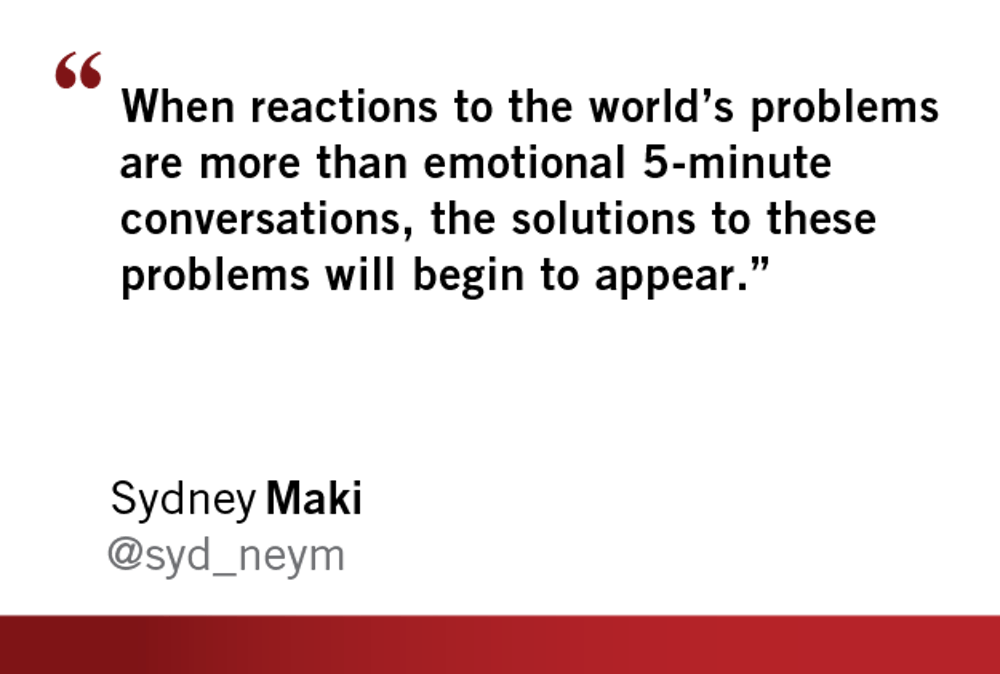When tragedy strikes, the world responds — for a while. Immediately following the Peshawar Massacre of Dec. 16, 2014, support flooded to the 145 casualties and their families, peers and the communities who were impacted. For approximately a week, the media was inundated with news, accounts and personal stories of the 132 uniformed students who were brutally executed by members of the Taliban. Slowly, the faces of these children and faculty began to slip from the screens as the tragedy was scribbled into a Wikipedia page and forgotten.
Atrocities occur far too often to impact us as much as they should. The violence portrayed in the news and mirrored within our outlets of entertainment has inevitably desensitized the population to the long-term shock of catastrophe. Yes, the world mourned the deaths of these children and their teachers. Indeed, memorials were created and stories were told, but only a month later, it has already been left for history books.
It takes more than initial upset and horror to make a difference. As mass shootings have plagued the U.S. in the recent past, the nation feared and fretted, but little has drastically changed. This is essentially the problem of a society which is acclimated to handle calamity with a level-head. Once the immediate tears dry, we are accustomed to moving forward without looking back — leaving problems sitting and stirring, remaining unattended.
It takes the ambition of an individual to initiate the change that the world so desperately begs for. Simple efforts of one or two people can create non-profits that will benefit thousands of disadvantaged children for decades. A small charity drive can grow into a nationally recognized organization designed to help the homeless population. It only takes a few people who do not so easily forget to inspire the change that can actually improve the problems faced by thousands.
141 Schools, for example, is a non-profit started by two Pakistanis currently living in Toronto. It was created in order to build a school for each of the lives lost in the Dec. 16 Peshawar Massacre. The initiative was started when the death toll was still at 141, accounting for the organization’s name. The action of a pair of concerned onlookers have resulted in a couple of schools being built in Pakistan already.
According to the founders, “We are driven by the need to mobilize communities, resources and technology for sustainable impact in Pakistan.” The term “sustainable impact” stands out in their mission as what is most necessary in creating a better tomorrow. Their goal to build at least 141 schools in remembrance of the schoolchildren and teachers murdered by Taliban gunmen is one that will promote the education and better the lives of a plethora of children and families in a country riddled with conflict and pain.
Our surroundings are fabricated by causes and effects, and our small actions ripple to influence more than we ever intend them to. When reactions to the world’s problems are more than emotional five-minute conversations, the solutions to these problems will begin to appear.
Sept. 11, 2001, changed the course of the U.S. in a way no other event has. Newfound respect for armed forces erupted from the streets, while memorials, funds, supportive organizations and charities were started to provide help in any fathomable way for those effected. Simple and logical forms of support piled around the nation and created a unity rarely seen. Changes were made to guarantee more safety precautions on planes and in airports, while the families of those lost in the attack are still honored and prided for their bravery.
The Peshawar Massacre deserves a similar magnitude of concern. In fact, all great tragedies in which the lives of the innocent are lost deserve to be avenged through the initiative of change. The actions of individuals that influence others and work towards a future of participation are necessary for resolutions that will positively impact the lives of others.
Reach the columnist at smmaki@asu.edu or follow @Syd_neym on Twitter.
Like The State Press on Facebook and follow @statepress on Twitter.
Editor’s note: The opinions presented in this column are the author’s and do not imply any endorsement from The State Press or its editors.
Want to join the conversation? Send an email to opiniondesk.statepress@gmail.com. Keep letters under 300 words and be sure to include your university affiliation. Anonymity will not be granted.





